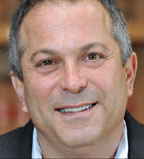

How the ACA will affect People Living With HIV/AIDS: A fragmented system of care
The first in a series that examines the Affordable
Care Act’s impact on people living with HIV/AIDS
The Affordable Care Act (ACA) is one of the most important pieces of legislation ever enacted for People Living With HIV/AIDS (PLWHA). Extending health coverage to millions of Americans who currently lack it, the ACA has the potential to substantially strengthen efforts to close gaps in the HIV-treatment continuum and ensure that all of the 515,000 Black Americans living with HIV achieve viral suppression.
The ACA aims to correct many of the weaknesses in the healthcare system that presently undermine efforts to provide lifesaving services to PLWHA. As Robert Greenwald, director of the Center for Health Law and Policy Innovation at Harvard Law School, advises: “The status quo equals lack of access to care. Employment-based coverage, the primary way that people in the U.S. obtain health insurance, doesn’t work for a lot of people living with HIV.”
This is especially true for Black Americans. Blacks are more than twice as likely as Whites to be unemployed, with PLWHA considerably more likely than the non-HIV infected to lack employment. More than one in five Black Americans have no health coverage, a rate that is almost twice as high as that for Whites.
Although Medicaid, Medicare and other safety-net programs provide critical health services for many who are otherwise uninsured, these programs aren’t designed to provide early access to preventive and comprehensive health care for people with HIV or other chronic diseases.
“Medicaid and Medicare as they currently exist are great programs, but they are disability-based programs, not health-care programs for the chronically ill,” Greenwald says. Medicaid largely excludes coverage for nondisabled adults, effectively foreclosing assistance to a huge share of PLWHA. And according to Greenwald, the Ryan White Program, with funding that represents a small fraction of spending on Medicaid and Medicare, can’t address the enormous holes in the health-care safety net for the 1.2 million Americans living with HIV.
The fact that Black Americans have inequitable access to meaningful health coverage greatly contributes to disparities in HIV-related health outcomes. According to the Centers for Disease Control and Prevention, Black people living with HIV are 43 percent less likely to have viral suppression (pdf) than Whites living with HIV. Having health coverage is associated with greater use of essential HIV-related health services and with improved health outcomes. Lower rates of treatment success among Black Americans mean that HIV-positive Black people are more likely to become ill or die, and suboptimal utilization of health services also contributes to the spread of HIV in Black communities.
Excerpted from the Black AIDS Institute’s 2013 State of AIDS Report, “Light at the End of the Tunnel: Ending AIDS in Black America.”




Be the first to comment